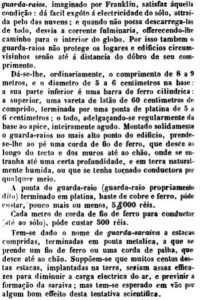Shoot Up is never knowingly on trend. Its not really our style. But 5 years ago Alison penned a post that is at last relevant – Diabetes Week 2018 is all about the power of language in diabetes care. And that was exactly the point she made as a pregnant diabetic back in 2013. Recycling is fashionable, so here it is again. Ahead of the game, that’s us.
Medicine is full of hazardous things. Dangerous drugs, sharp objects, nasty viruses. But when it comes to chronic diseases, sometimes words are one of the most potentially treacherous tools available to a healthcare team. This is my plea to all healthcare professionals…
Dealing with a pregnant diabetic is admittedly a bit like juggling with lit fireworks. There’s a real chance she’ll explode at any point for no rational reason other than being under a fair amount of pressure and too full of hormones. So this makes it even more important to think before you speak. Diabetes forums are full of pregnant diabetics who’ve just had something stupid/unhelpful/dispiriting/hurtful said to them at a consultation when the same subject could have been covered in a far more productive session simply by choosing some more appropriate words.
I generally cope with incidents like this with a combination of irritation and humour. But last week I had an encounter with a midwife that did upset me. And when I look back on it, it could have been so easily avoided by her simply engaging her brain before she opened her mouth:
The barb that punctured my not-as-tough-as-I-thought pregnant diabetic skin was: I see you have a history of miscarriages, were they caused by your poor diabetes control? It was an innocently asked question from a community midwife who should have known better. For any other healthcare professionals reading this, can I ask that you think before you speak? She basically asked me did I cause my own miscarriages? Would you ask anyone else that? If you insist on jumping in with both feet without reading my notes (which clearly show I had good control) can I suggest asking open questions in future – what do they think caused your miscarriages? Rather than diving in headfirst with a set of ill informed, pre conceived ideas that really don’t help anyone?
On the less upsetting but still damn irritating side of things have been:
Oh, you have a small baby. What? Hold on. Stop the bus. What did we miss? She’s on the 45th percentile for growth, that’s pretty much bang on isn’t it? Oh yes, but it’s small for a baby of a diabetic. Ok, do you want to just stick to the facts and measure my baby against where it should be, rather than where you judge it should be compared to your prejudices about diabetic women?
Diabetics have big babies. Yes, some do. And some don’t. So shall we just focus on the facts in front of us about the size of my baby. Otherwise, we might as well analyse what size babies people called Alison have and compare ours to that too, it’s about as useful.
In a letter from the hospital to my GP: Her insulin requirements have increased and her basal rates have been adjusted. Ah, how handy to know that the diabetes pixie is changing my basal rates for me. I thought it was me spending the time analysing the data and adjusting accordingly but I must have dreamt that bit. Can I suggest a little nod towards the fact that this stuff doesn’t happen by magic – I’d recommend she has adjusted her basal rates accordingly. This also gives the added benefit of allowing other medics to determine whether the patient is making all their own adjustments or whether the DSN is doing it for them – far more informative that the diabetes pixie getting the credit for everything.
Your HbA1c is 5.3, that’s much better than the last one of 5.6. Really? Much better? They’re both well within target range and beyond that are meaningless without an understanding of how many hypos were needed to get to that level. Shall we avoid getting into competitive HbA1c territory? It really doesn’t help. Let’s deal with the facts rather than subjective opinions which change from Dr to Dr.
So when it comes to delivering healthcare, could people just have a little think about the impact of what they say? It sounds like such a teeny, tiny thing, but when you’re on the receiving end of it week in week out it wears you down. And it devalues the message you’re trying to give.
So #talkaboutdiabetes and remember that #languagematters


I agreed with you first time round and agree with you again co-writer. It’s always the well-meaning but completely-missing-the-mark comments that have the biggest impact. Straight out criticism or wrong-headedness (though very, very rare) is far easier to deal with.